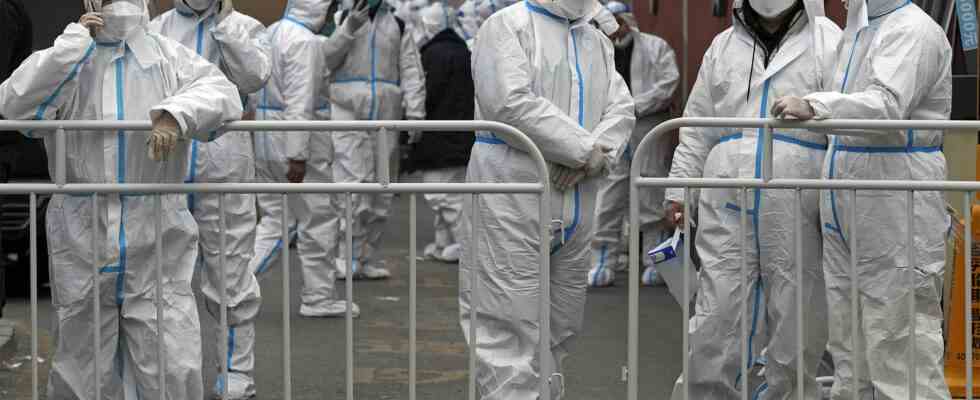Status: 11/30/2022 10:57 am
The tough zero-Covid course of the government in Beijing not only endangers the Chinese economy, but also the global economy. But there are first glimmers of hope.
Beijing’s strict corona policy is continuing to massively slow down the Chinese economy. This is also shown by the official purchasing manager indices, which again turned out worse than expected in November. The mood barometer for industry fell from 49.2 points in the previous month to just 48 points, the weakest value since April.
The decline in the service barometer was even clearer: only 46.7 points were achieved here after 48.7 in the previous month. “Possibly not unexpectedly, Covid hit the service sector even more,” said Tommy Wu, FX expert at Commerzbank. The overall index fell from 49.0 points to 47.1. Values below the 50 mark indicate a slowdown in growth momentum in China.
IMF urges Beijing to act
Only yesterday evening the International Monetary Fund (IMF) warned of risks for the Chinese economy. The fund may have to adjust its forecast for China’s economic growth downwards, said IMF boss Kristalina Georgieva in Berlin. The government in Beijing has leeway to stimulate the economy and thus resist downward pressure.
In a press conference yesterday, Chinese health officials said they would speed up vaccinations for the elderly. “This was taken as an indication that the authorities are becoming more flexible on the zero-Covid policy and that another step towards reopening has been taken,” said Commerzbank expert Wu. However, the health authorities have not responded directly to the recent protests.
Risks for the global economy
The Chinese government’s zero-Covid policy remains a key issue on the markets as well. “Investors are tense,” emphasizes IG analyst Christian Henke. “Further lockdowns would hit the economy in China and thus the global economy hard. The supply chain problems that have existed since 2020 cannot be solved.”
The Volkswagen Group only announced at the beginning of the week that it would restrict its production in China due to the corona measures there. Meanwhile, according to insider reports, the unrest at Apple’s supplier Foxconn could lead to a loss of production of almost six million iPhones this year.
The key question for markets now is whether Beijing will relax its strict zero-Covid policy. Experts are at best cautiously optimistic in this regard: “Given the high Covid 19 outbreak numbers we currently have, the reopening process in China will probably resemble a ‘two steps forward, one step back’ situation,” said Alvin Tan, currency strategist at RBC Capital Markets.
Investors look to China
After all: Despite the recent increase in new corona infections to a record high, China has not further tightened its approach. The Chinese health authorities even announced that they would be “more flexible” in the implementation of the anti-Covid restrictions in the future, but without specifying this in more detail.
Hopes for slow opening steps had recently increased on the stock exchanges. In the coming weeks – beyond the meetings of the central banks ECB and Fed – how things will continue in China should have a decisive influence on further events, not only on the Asian markets.

